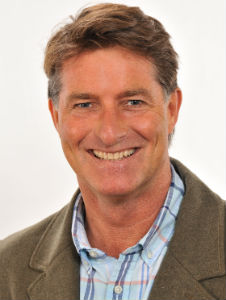 Wednesday 14 November 2018 4:11pm
Wednesday 14 November 2018 4:11pm
Spiritual care must be integrated into health system care plans, policies and training in order to reflect national guidelines and strategies more effectively, according to University of Otago researchers.
In interviews with 24 cancer survivors, their whanau and health workers, the researchers found participants felt as if documentation of their spiritual beliefs had the potential to inform others about their needs and wishes and to foster respect for their choices.
Participants highlighted the need for spiritual care to be respected, normalised and seamlessly integrated within the current health system, and for health professional training in spirituality to occur early on.
Working with MidCentral District Health Board's Spiritual Care Coordinator, Sande Ramage, lead author Richard Egan explains that evidence concerning the importance of spirituality to overall health and wellbeing has grown exponentially over the past 20 years. The importance of spirituality in coping with cancer has also been well documented. Because of the weight of such evidence, it has been incorporated into the New Zealand Ministry of Health's Guidance for Improving Supportice Care for Adults with Cancer in New Zealand.
While there is no “gold standard” definition of spirituality, within the healthcare literature it is generally understood to be inclusive of all perspectives. The study participants described spirituality as being characterised by core values, expressions of love and kindness and connectedness with others and/or with the environment.
While some participants suggested that religion was, for them, a part of spirituality, others noted that spirituality is explicitly distinct from religion.
Dr Egan says study members expressed the need for sound communications skills as a way of facilitating spiritual care. “It appears as though active listening should be the key priority in understanding a person's spiritual care needs and that a kind, gentle, and open nature is appreciated by most.”
The study findings parallel much of the international literature to date. “It is recognised that allowing everyone to express their needs and wishes is fundamental,” Dr Egan says.
“Recording, or enquiring about beliefs (and non-beliefs) in hospital or clinical environments – particularly at the time of admission – may help in understanding what someone may or may not be comfortable with, along with their perceptions about the spiritual care domain.”
MidCentral DHB is working towards this goal with its Transforming Spiritual Care Strategy.
Previous research carried out by Dr Egan has found that to date, structural impairments such as lack of both time and cultural competence, limit the ability of healthcare professionals to provide effective pyscho-social-spiritual care for cancer patients and that there is a definite need for increased training in this area among New Zealand health professionals.
In the long-term Dr Egan hopes the research, funded through a Cancer Society Scholarship, will inform clinical practice and support staff training in order to improve patient experience and satisfaction.
“Ultimately, we wish to ensure that cancer patients and whanau are treated holistically, and that their essential being is respected.”
For further information, contact:
Dr Richard Egan
Department of Preventative and Social Medicine
Dunedin School of Medicine
Tel 03 479 7206
Email Richard.egan@otago.ac.nz
Liane Topham-Kindley
Senior Communications Adviser
Tel 03 479 9065
Mob 021 279 9065
Email liane.topham-kindley@otago.ac.nz
Electronic addresses (including email accounts, instant messaging services, or telephone accounts) published on this page are for the sole purpose of contact with the individuals concerned, in their capacity as officers, employees or students of the University of Otago, or their respective organisation. Publication of any such electronic address is not to be taken as consent to receive unsolicited commercial electronic messages by the address holder.
FIND an Otago Expert
Use our Media Expertise Database to find an Otago researcher for media comment.